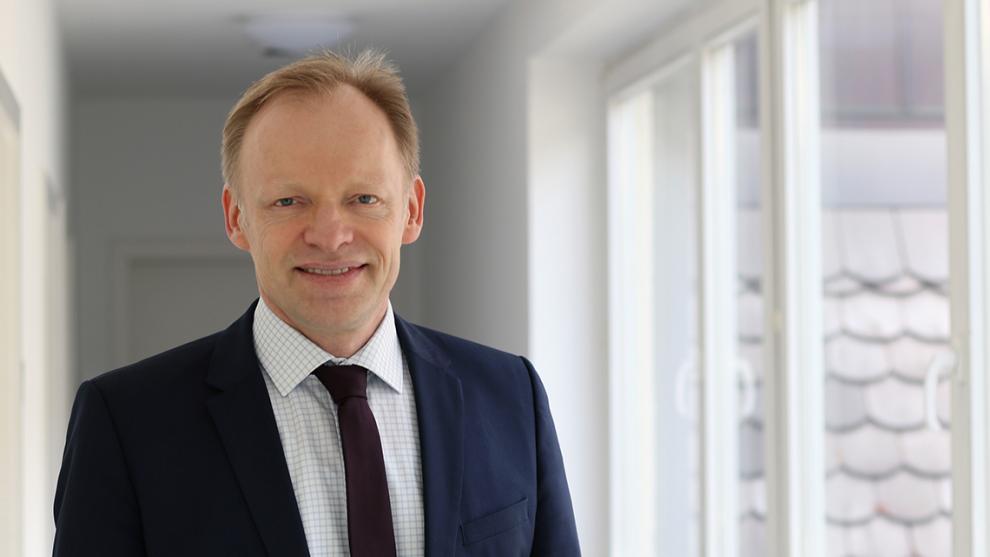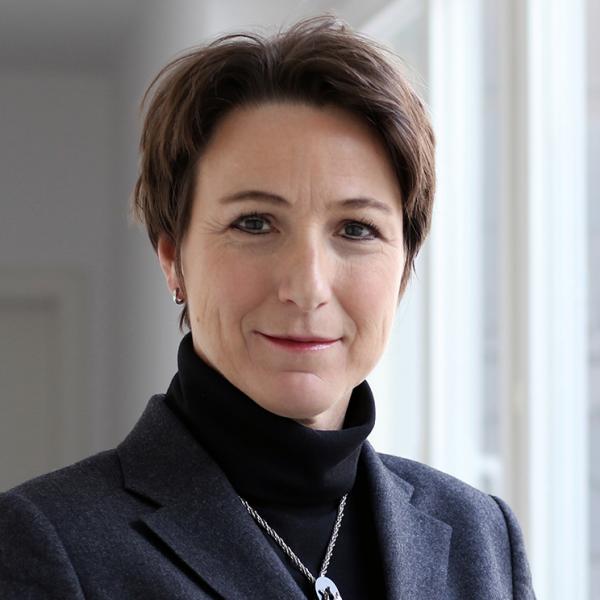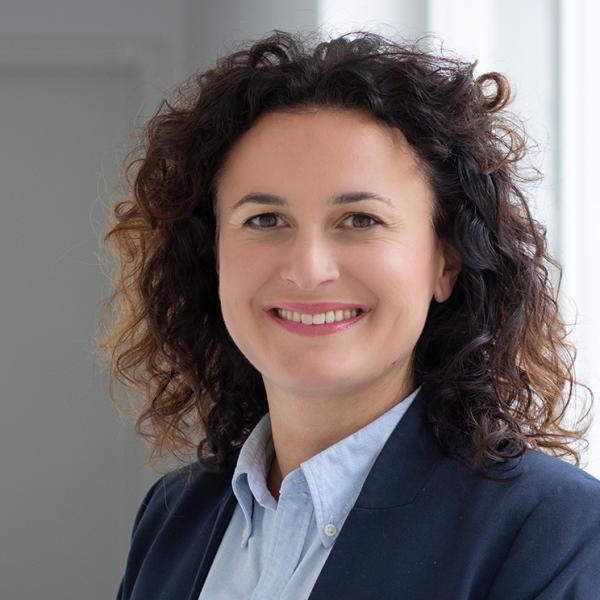ifo Media Center
The ifo Institute invites you to participate in the discussion of interesting economic topics via the Internet. In our ifo Media Center a whole series of remarkable events are available and can be viewed in full length. We also record selected speeches and presentations given by employees or at events and make them available in our Media Center.

Business Climate in the German Chemical Industry Stagnates at a Low Level
The business climate in the German chemical industry stagnated at a low level in January. The value slipped to -15.9 points, down from -15.4 points* in December. Companies rated their current business situation at -17.1 points, which is slightly worse than in the previous month. At -14.6 points, the level of pessimism in their business expectations remained virtually unchanged. “Germany’s chemical industry is still very much in crisis,” says industry expert Anna Wolf of the ifo Institute.
ifo Institute / EconPol Europe: Russia Circumventing Sanctions via CIS Countries and Turkey
Russia is circumventing sanctions to obtain Western goods primarily via the CIS countries in Central Asia and Turkey, according to a study by the ifo Institute on trade data for sanctioned goods. The study examined goods that are critical to the Russian economy or important for the military industry, such as vehicles and ball and roller bearings. “In 2022, exports to Russia from Armenia, Kazakhstan, Uzbekistan, Kyrgyzstan, and Turkey of goods critical to the Russian economy or important for the military industry were 50 times higher than those countries’ exports of general goods to all destination countries in 2019. This indicates a very high probability of sanctions evasion,” says Feodora Teti, Deputy Director of the ifo Center for International Economics.
European Residential Construction Pushes Sector into the Red
By 2026, Europe will have finished building only about 1.5 million housing units (down 13% on 2023). For Germany, that means an expected decline of 35%. This is evident from projections by the EUROCONSTRUCT forecasting network, of which the ifo Institute is a member. “Due in particular to the sharp rise in construction and financing costs, it’s often no longer possible to build new homes in Germany. Politicians haven’t yet made a decisive improvement to the policy framework,” says ifo construction expert Ludwig Dorffmeister. “The resulting decline in the number of permits doesn’t bode well for the coming years.”
Worsening Order Shortage Weighs on the Self-Employed in Germany
Many of Germany’s self-employed reported that their order intake in January was too low. The proportion of those with this complaint increased to 47.9% at the start of the year, up from 45.3% in October. This is a finding from the latest ifo survey for this segment (“Jimdo-ifo Business Climate Index for the Self-Employed”). “The order books of the self-employed are plainly melting away,” says ifo expert Katrin Demmelhuber, “and the resulting decline in sales is a cause for concern.”
ifo President Fuest: “EU Should Provide for Geopolitical Risks without Sacrificing the Benefits of International Trade”
President of the ifo Institute Clemens Fuest advocates greater strategic independence for the EU. “Since Germany’s and Europe’s prosperity is based firmly on international trade, it is particularly important here to develop the right geoeconomic strategy for potential crises,” he said at the Munich Security Conference. “To reduce risks, it makes sense to diversify raw material and energy supplies, secure critical physical and digital infrastructure, and increase warehousing or maintain in-house production capacity for highly critical goods such as certain medical products.”
Attractive Politicians Engage Less with Parliamentary Activities
Attractive politicians are absent from parliament more often and are less involved in parliamentary work, according to a recent study by the ifo Institute. “Our results show that more attractive members of parliament have more opportunities for alternative activities – and that they make consistent use of them. For example, they have higher outside earnings and appear more often on talk shows,” says ifo researcher Timo Wochner.
ifo Dresden: Der Osten sollte in Förderung der Arbeitsplatzqualität investieren
Investitionen in qualifizierte und moderne Arbeitsplätze erhöhen die Produktivität von Unternehmen in Ostdeutschland. „In den Fokus staatlicher Förderung sollte das Vermitteln relevanter Qualifikationen, besserer technischer Ausstattung der Arbeitsplätze und Entwicklung und Einsatz arbeitssparender Technologien kommen“, sagt Joachim Ragnitz von der Niederlassung Dresden des ifo Instituts in einem Aufsatz der aktuellen Ausgabe von „ifo Dresden berichtet“. So kann insbesondere für Ostdeutschland der notwendige Strukturwandel beschleunigt werden.
Germany Should Keep Its Debt Brake
ifo President Clemens Fuest and Niklas Potrafke, Director of the ifo Center for Public Finance, argue that the German debt brake should be retained without reforms. The economists present their reasoning in a recent article for ifo Schnelldienst. “It forces politicians to set priorities. At the same time, it gives the government sufficient leeway to take on debt in cases where it makes economic sense,” Fuest says. The current regulations also include the possibility of special cases for taking on debt, as for the German Armed Forces. Requiring a two-thirds majority in a Bundestag vote is appropriate in such instances.
Sentiment in German Residential Construction at an All-Time Low
The business climate in German residential construction has fallen from -56.9 points to -59.0 points – the lowest value ever measured. The same is true for business expectations, which have sunk even further, dropping from -64.7 points to -68.9 points. “The outlook for the coming months is bleak,” says Klaus Wohlrabe, Head of Surveys at ifo. “Residential construction is still facing the double whammy of a lack of new orders and ongoing project cancellations.”
German Manufacturing Focuses on Diversifying Supply Chains
German manufacturers continue restructuring their supply chains even after the COVID-19 pandemic to reduce the risk of disruptions. This is the result of a new survey by the ifo Institute and EconPol Europe. Companies focus primarily on diversification. Of the companies surveyed, 58% have broadened their supply chains and found new suppliers in the past year. Moreover, one in three companies plans to expand its supplier base further. “Despite the significant decline in supply chain disruptions and material shortages last year, the transformation of German manufacturing's supply chains is still in full swing. Supply chain diversification in particular is a long-term task that requires companies to be committed for the long haul,” says ifo researcher Andreas Baur.
Les industriels allemands misent sur la diversification des chaînes d’approvisionnement
Après la pandémie, l’industrie allemande poursuit la transformation de ses chaînes d’approvisionnement afin d’atténuer les risques de rupture. C’est ce qui ressort d’une enquête de l’Institut ifo. Pour ce faire, les entreprises cherchent avant tout à diversifier leurs sources. En 2023, 58 % des répondants ont élargi leurs chaînes d’approvisionnement et trouvé de nouveaux fournisseurs. Une entreprise sur trois envisage par ailleurs d’étendre sa propre base de fournisseurs. « Malgré la réduction sensible des perturbations et des pénuries de matériaux observée l’an dernier, l’industrie allemande continue à réorganiser ses chaînes logistiques. La diversification amorcée est en effet un travail de longue haleine qui exige de la persévérance », explique Andreas Baur, chercheur à l’Institut ifo.
North Rhine-Westphalia Most Likely to See Unequal Educational Opportunities as a Problem
Almost 62% of people in North Rhine-Westphalia see unequal opportunities in the German education system as a serious problem. This has been shown by an analysis of the 2023 ifo Education Survey, in which over 5,500 adults participated. The average across Germany is 57%.
Les économistes considèrent que la menace d’une récession pèse sur de nombreux pays
Les économistes du monde entier estiment que de nombreux pays risquent d’entrer en récession d’ici la fin de l’année. En Europe, ce risque est particulièrement important en Allemagne, au Royaume-Uni et aux Pays-Bas (38% pour chaque État) ainsi qu’en Ukraine (41%). C’est ce qui ressort de l’Economic Experts Survey (EES), un sondage trimestriel réalisé par l’Institut ifo et l’Institut de politique économique suisse IWP. « Selon les experts, cette probabilité accrue de récession s’explique par la situation géopolitique (43% des réponses) et les prix de l’énergie (33%) », explique Philipp Heil, chercheur à l’Institut ifo.
Economic Experts See Considerable Risk of Recession in Many Countries
Economic experts from around the world believe there is a considerable likelihood of a recession in many countries by the end of 2024. In Europe, this applies in particular to Germany, the United Kingdom, and the Netherlands (38% each) as well as to Ukraine (41%). These are among the findings of the Economic Experts Survey, a quarterly survey conducted by the ifo Institute and the Institute for Swiss Economic Policy. “The experts pointed to geopolitical events (43%) and energy prices (33%) as the main factors increasing the likelihood of a recession,” says ifo researcher Philipp Heil.
A Majority of Germans Want Their Country to Be a Climate Action Pioneer but do not support a CO₂ price on carbon intensive activities
A majority of the German population wants Germany to play a pioneering role in climate action. A total of 55 percent are in favor of this, while 33 percent are against such a role. A further 12 percent do not want to say one way or the other. But support for CO₂ prices on carbon intensive activities is weak. These are findings of a representative survey conducted by the Ludwig Erhard ifo Center for Social Market Economy in Fürth in cooperation with the Nuremberg Institute for Market Decisions (NIM).
Weak Start to the Year for German Retailers
The ifo Business Climate in Germany’s retail deteriorated in January. Both the current business situation and business expectations for the coming months clouded over. “Consumer restraint and a lack of skilled workers will likely continue to pose challenges for many retailers in 2024,” says ifo expert Patrick Höppner.
Lack of Orders Weighs on the German Economy
The lack of orders in manufacturing is increasingly becoming a burden on the German economy. In January, 36.9% of manufacturing companies reported a lack of orders, up from 36.0% in October. A year ago, the proportion was just 20.9%. In the service sector, the proportion rose from 29.3% to 32.1%. “The lack of orders has worsened noticeably over the past year. Hardly an industry has been spared,” says Klaus Wohlrabe, Head of Surveys at ifo. “What’s more, order backlogs are shrinking.”
Material Shortages Noticeably Better in German Manufacturing
Material shortages in German manufacturing continue to reduce. In January, 12.5% of the companies surveyed reported shortages, down from 18.2% in October. “At the moment, the attacks on commercial shipping in the Red Sea aren’t affecting the supply situation for raw materials and intermediate products,” says Klaus Wohlrabe, Head of Surveys at ifo.
Institut ifo : l’industrie automobile allemande retrouve des couleurs
Le moral des constructeurs automobiles allemands s’est sensiblement amélioré en janvier. L’indicateur du climat des affaires est passé de – 15,8* points en décembre à + 6,3 points ce mois-ci. C’est ce que révèlent les enquêtes conjoncturelles réalisées par l’Institut ifo. « Les entreprises du secteur automobile allemand jugent leur situation actuelle plus favorable et se montrent nettement plus optimistes pour les prochains mois qu’en fin d’année 2023 », constate Anita Wölfl, chercheuse au Centre ifo de l’organisation industrielle et des technologies nouvelles.
German Automotive Industry Can Breathe Again
The business climate in the German automotive industry eased substantially in January, with the indicator rising to -6.3 points, up from -15.8 points* in December. “Companies in the German automotive industry are more positive about their current business situation and are much more optimistic about the coming months than they were at the end of 2023,” says Anita Wölfl, a specialist at the ifo Center for Industrial Organization and New Technologies.




